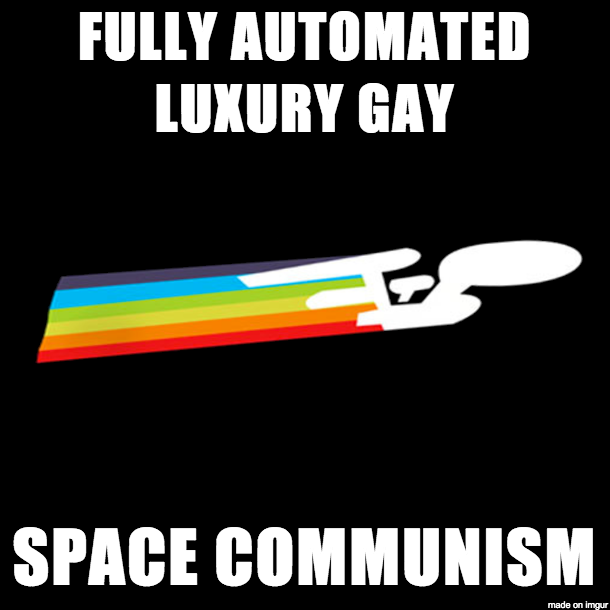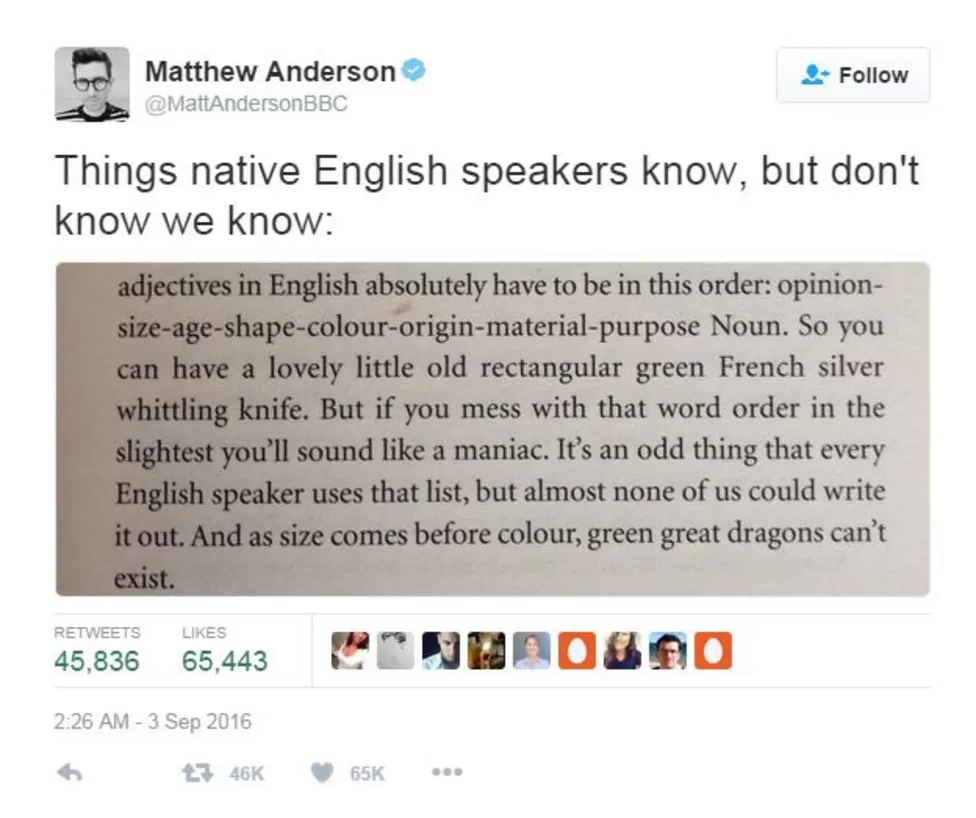The utopia of Star Trek. Teams of people working together to solve problems, living in a post-scarcity society, focused on science and exploration.
This is sometimes called ‘Fully Automated Luxury Communism’ (from the Atlantic article), sometimes called ‘Fully Automated Luxury Gay Space Communism'[1] (by the memes).

(Source: knowyourmeme)
One would think that if this was truly our goal as a species, we would be working together, working tirelessly to get ourselves closer to this post-scarcity utopia. But we aren’t. Something is getting in the way (probably many somethings). Here is my (tentative)[2] list of obstacles, each to be explored in a subsequent post (linked from here when I’m done):
My list of possible Reasons Why We Can’t Have Nice Things:
1) Humans just don’t want nice things. Either because they’re uncomfortable with the required introspection or amount of change required, or because it interferes with or would reduce something they want instead (cf. ‘finite games vs. infinite games'[3])
2) The Ideology of Conservatism. Much of conservative ideology is built around unnecessary hierarchies and the presumption that humanity is better off when more people are worrying about the lower levels of Maslow’s Hierarchy.
3) Capitalism. Somewhat related to the above, the goals of capital in most of its incarnations are at odds with post-scarcity, and it tends to shy away from incarnations that could be congruent with it, often as a result of:
4) Regulatory Capture. Any system that would lead to post-scarcity must have some boundaries or regulation. Unfortunately, any such regulations are enforced by humans, and humans are subject to ‘capture’ by those they are meant to regulate (cf. The Big Short)
5) The inability/unwillingness of humans to scale delegation or decision-making. Caleb Gamman mentioned that Film Studio execs attempt to concentrate power and film ‘IP’, but are unable to flexibly use all of the resources (of various types) that they have concentrated, being only able to focus on a small number of things at once, leaving large amounts of resources to languish or be inefficiently used.
6) Others to be named later
Let me know what you think! What did I leave out? What did I get wrong? Should we be aiming for something different as a species?
[1] This phrase feels surprisingly difficult, probably due to the ‘Green Great Dragon‘ problem

“adjectives in English absolutely have to be in this order: opinion-size-age-shape-colour-origin-material-purpose Noun. So you can have a lovely little old rectangular green French silver whittling knife. But if you mess with that word order in the slightest you’ll sound like a maniac. It’s an odd thing that every English speaker uses that list, but almost none of us could write it out. And as size comes before colour, green great dragons can’t exist.”
[2] Tentative for now, as I write the other posts that make up this series. This list may change, the ordering may change.
[3] In this context, I’m referring to the difference between a ‘finite game’, one which is played to gain power or ‘win’ against other humans, and an ‘infinite game’, which is played for the betterment of one’s self. I was introduced to this concept by the title of the book:’Finite and infinite games’ by James P. Carse, which purportedly plays with some of these concepts.